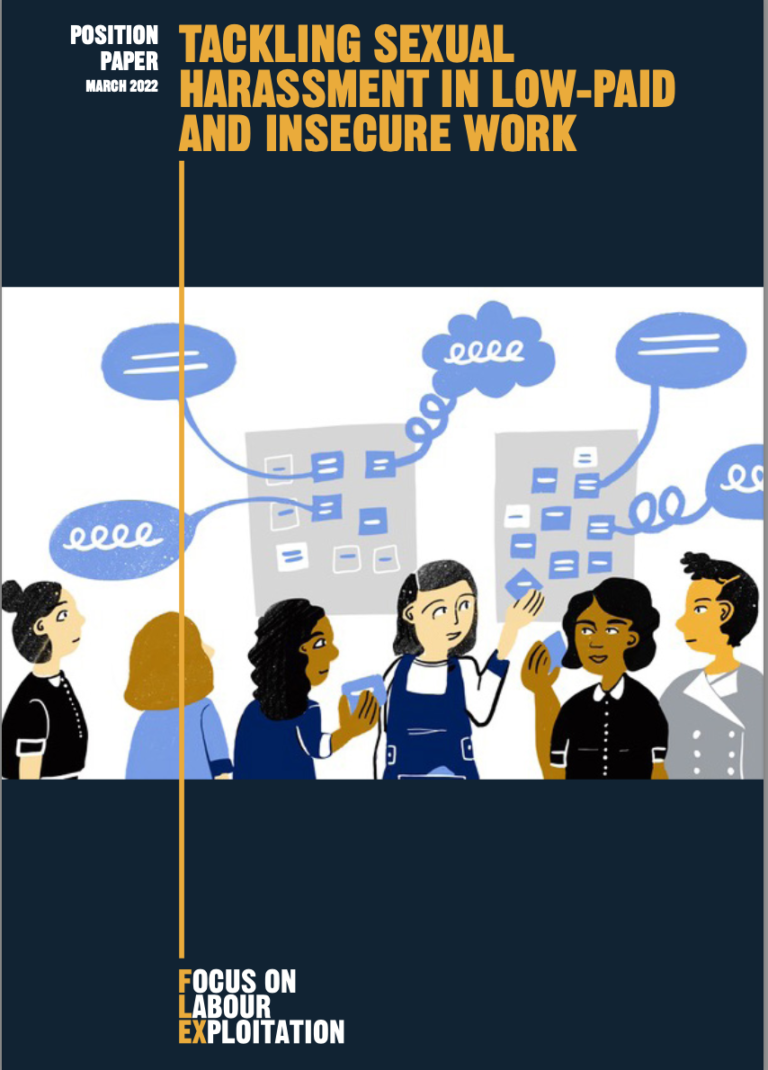The purpose of this position paper is to inform the development of an effective labour market enforcement strategy for tackling sexual harassment in the context of low-paid and insecure work. It seeks to nuance the discussion around sexual harassment in the workplace by bringing attention to the intersecting vulnerabilities that create increased risk of sexual harassment for certain groups of workers and additional barriers to enforcing their rights at work. It calls for a shift in strategy from a system that relies almost entirely on individuals to enforce their rights, to one that recognises the need for a better balance between individual and state-led enforcement.

